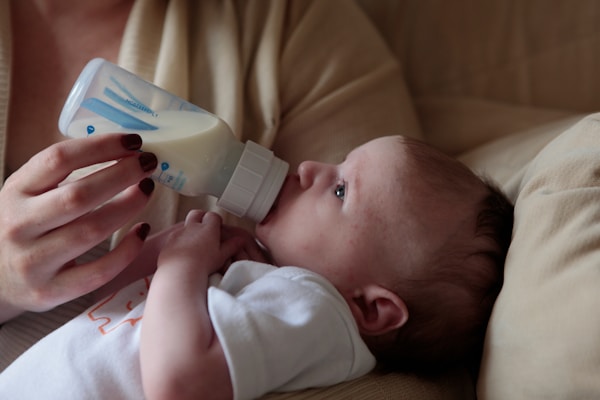Whether you’re a working mom who is pumping on the go, or a stay-at-home mom who wants to be able to do other things while you pump, a hands-free breast pump can be a game-changer. There are a few different types of hands-free breast pumps on the market, and in this article, we’ll help you figure out which one is right for you and how to use it. Keep reading!
How Often to Pump

There is no one definitive answer to the question of how often to pump. Some women find that they need to pump every few hours in order to maintain their milk supply, while others can go longer between pumping sessions. It is important to experiment and find what works best for you and your baby.
A hand free breast pump allows you to pump both breasts at the same time, which can save time and help you maintain a plentiful milk supply. If you’re only able to pump once every few hours, try pumping both breasts at the same time for at least ten minutes. This will help ensure that your breasts are completely emptied.
Adjusting to Hands-Free Pumping
When you’re using a hands-free pump, it’s important to set everything up how you want it before you start using your hands for something else. There are a few things that you can do to make sure that the pump is working correctly and that you’re getting the most out of it. First, make sure that the flanges fit properly. They should be snug against your breasts without being too tight.
If they are too tight, it will be difficult to maintain good blood flow, and you may experience pain or discomfort. Next, adjust the speed and suction of the pump to find what feels best for you. You may need to experiment a little bit before finding what works best. Remember not to increase the suction too much, or it may cause pain or discomfort. Finally, relax and let the pump do its job!
Troubleshooting a Hands-Free Pump
When troubleshooting a hands-free breast pump, there are a few key things to keep in mind. First, if the pump isn’t working properly, it may be due to air bubbles trapped in the tubing or milk ducts. To remove these bubbles, hold the pump over a sink and gently squeeze the tubes until the bubbles are gone. If this doesn’t work, you can also try submerging the entire pump in water and squeezing out any bubbles that way.
If your pump is still not working correctly after trying to remove the air bubbles, it may be clogged. In this case, you will need to clean it thoroughly. To clean a hands-free breast pump, disassemble all of the parts and wash them with hot soapy water. Be sure to rinse well and allow all of the pieces to dry completely before reassembling them.
If your pump continues to have problems even after cleaning it thoroughly, it may be time to replace it. Contact the manufacturer for more information on how to get a new one.
Best Pumping Position for Hands-Free Pumping
Finding your ideal pumping position is the most important part of successfully using a hands-free pump. The correct position will allow the milk to flow more freely and help you to extract more milk. There are three basic positions for pumping: sitting up, lying down, and standing.
Sitting up is the best position for most women. It allows you to see your breasts and helps keep the milk flowing. To sit up, place a pillow behind your back and put your feet on a stool or chair so that your knees are bent. You can also try leaning over a counter or desk.
Lying down is a good position if you have trouble sitting up or if you are tired. To lie down, place a pillow under your head and another under your arm. You may also want to put a pillow between your legs.
Standing is good if you want to move around while you pump or if you’re uncomfortable sitting or lying down. Stand with one foot slightly in front of the other and hold onto something for support, such as the back of a chair or countertop.
Regardless of your pumping style, using a hands-free breast pump can be more comfortable and convenient than using a traditional pump. With this convenient piece of baby equipment, you can do light housework, work on the computer, or even give your baby a bottle while you pump.

